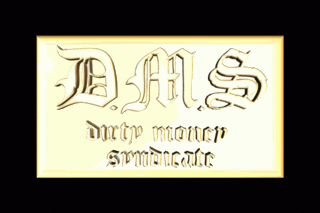Dichlorodiphenyltrichloroethane (DDT) is a organochlorine contact insecticide that kills by acting as a nerve poison.
Initially DDT was spectacularly successful particularly in the control of malaria, as well as against agricultural pests. But by the 1950s, resistance problems had developed, and during the 1960s, a number of serious environmental problems were identified leading to wide-ranging restrictions on its use.
For the guy/gal/hermaphoditic individual that wrote the public note for DDT in guild tool who mistakenly assumed I was a wrestling/wrAstling/ fucking retard parade "OMG THAT SHIT IS REAL", fan.
Silent Spring took Carson four years to complete. It meticulously described how DDT entered the food chain and accumulated in the fatty tissues of animals, including human beings, and caused cancer and genetic damage. A single application on a crop, she wrote, killed insects for weeks and months, and not only the targeted insects but countless more, and remained toxic in the environment even after it was diluted by rainwater. Carson concluded that DDT and other pesticides had irrevocably harmed birds and animals and had contaminated the entire world food supply. The book's most haunting and famous chapter, "A Fable for Tomorrow," depicted a nameless American town where all life -- from fish to birds to apple blossoms to human children -- had been "silenced" by the insidious effects of DDT.
First serialized in The New Yorker in June 1962, the book alarmed readers across America and, not surprisingly, brought a howl of indignation from the chemical industry. "If man were to faithfully follow the teachings of Miss Carson," complained an executive of the American Cyanamid Company, "we would return to the Dark Ages, and the insects and diseases and vermin would once again inherit the earth." Monsanto published and distributed 5,000 copies of a brochure parodying Silent Spring entitled "The Desolate Year," relating the devastation and inconvenience of a world where famine, disease, and insects ran amuck because chemical pesticides had been banned. Some of the attacks were more personal, questioning Carson's integrity and even her sanity.
Vindication
Her careful preparation, however, had paid off. Anticipating the reaction of the chemical industry, she had compiled Silent Spring as one would a lawyer's brief, with no fewer than 55 pages of notes and a list of experts who had read and approved the manuscript. Many eminent scientists rose to her defense, and when President John F. Kennedy ordered the President's Science Advisory Committee to examine the issues the book raised, its report thoroughly vindicated both Silent Spring and its author. As a result, DDT came under much closer government supervision and was eventually banned. The public debate moved quickly from whether pesticides were dangerous to which pesticides were dangerous, and the burden of proof shifted from the opponents of unrestrained pesticide use to the chemicals' manufacturers.
The most important legacy of Silent Spring, though, was a new public awareness that nature was vulnerable to human intervention. Rachel Carson had made a radical proposal: that, at times, technological progress is so fundamentally at odds with natural processes that it must be curtailed. Conservation had never raised much broad public interest, for few people really worried about the disappearance of wilderness. But the threats Carson had outlined -- the contamination of the food chain, cancer, genetic damage, the deaths of entire species -- were too frightening to ignore. For the first time, the need to regulate industry in order to protect the environment became widely accepted, and environmentalism was born.
Carson was well aware of the larger implications of her work. Appearing on a CBS documentary about Silent Spring shortly before her death from breast cancer in 1964, she remarked, "Man's attitude toward nature is today critically important simply because we have now acquired a fateful power to alter and destroy nature. But man is a part of nature, and his war against nature is inevitably a war against himself…[We are] challenged as mankind has never been challenged before to prove our maturity and our mastery, not of nature, but of ourselves."
One of the landmark books of the 20th century, Silent Spring's message resonates loudly today, even several decades after its publication. And equally inspiring is the example of Rachel Carson herself. Against overwhelming difficulties and adversity, but motivated by her unabashed love of nature, she rose like a gladiator in its defense.



